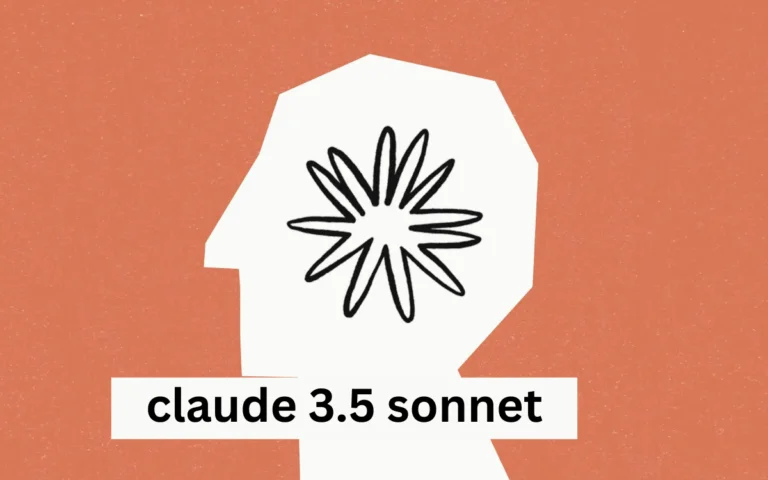Why Claude 3.5 Sonnet is Not Available in Canada? a pressing question looms over the Canadian tech scene: Why isn’t Claude 3.5 Sonnet available in Canada? This article delves deep into the factors behind this unavailability, exploring the complex web of technological, regulatory, and strategic considerations that have led to this situation.
The Rise of Claude 3.5 Sonnet: A Game-Changer in AI
Before we unpack the reasons for Claude 3.5 Sonnet’s absence in Canada, it’s crucial to understand what makes this AI model so special. Claude 3.5 Sonnet represents a significant leap forward in natural language processing and generation. Its advanced capabilities include:
- Unprecedented language understanding
- Contextual awareness
- Ability to handle complex tasks
- Improved safety and ethical considerations
These features have positioned Claude 3.5 Sonnet as a frontrunner in the AI race, making its unavailability in Canada all the more puzzling.
The Canadian AI Landscape: A Thriving Ecosystem
Canada has long been recognized as a hub for AI research and development. With world-renowned institutions and a supportive government, the country has fostered an environment conducive to AI innovation. This makes the absence of Claude 3.5 Sonnet even more intriguing. Let’s explore some key aspects of Canada’s AI ecosystem:
World-Class Research Institutions
Canadian universities and research centers have been at the forefront of AI advancements. Institutions like the University of Toronto, McGill University, and the University of Alberta have produced groundbreaking research in machine learning and neural networks.
Government Support for AI Initiatives
The Canadian government has demonstrated a strong commitment to AI development through various funding programs and policy initiatives. This support has attracted both domestic and international talent to the country’s AI sector.
A Growing Tech Industry
Canada’s tech industry, particularly in cities like Toronto, Montreal, and Vancouver, has seen significant growth in recent years. This expansion has created a fertile ground for AI companies and startups.
Given this thriving ecosystem, one might expect Claude 3.5 Sonnet to be readily available in Canada. So, what’s holding it back?
Regulatory Hurdles: Navigating the Complex Landscape of AI Governance
One of the primary reasons for Claude 3.5 Sonnet’s unavailability in Canada lies in the realm of regulations. As AI technology advances at a rapid pace, governments worldwide are grappling with how to regulate these powerful tools. Canada, known for its cautious approach to emerging technologies, has implemented several regulatory measures that may impact the deployment of advanced AI models like Claude 3.5 Sonnet.
Data Privacy and Protection
Canada has stringent data privacy laws, including the Personal Information Protection and Electronic Documents Act (PIPEDA). These regulations set high standards for the collection, use, and disclosure of personal information. For AI models that process vast amounts of data, compliance with these laws can be challenging.
Ethical AI Guidelines
The Canadian government has been proactive in developing ethical AI guidelines. While these guidelines are not legally binding, they set expectations for AI development and deployment in the country. Ensuring that Claude 3.5 Sonnet aligns with these ethical standards may require additional testing and validation.
Cross-Border Data Flows
The movement of data across international borders is a sensitive issue in the AI world. Canada’s regulations on cross-border data flows may present challenges for companies like Anthropic in deploying their AI models in the country.
Technical Challenges: Adapting Claude 3.5 Sonnet for the Canadian Market
Beyond regulatory considerations, there are technical aspects that may contribute to Claude 3.5 Sonnet’s absence in Canada. These challenges highlight the complexity of deploying advanced AI models in different regions.
Language and Cultural Nuances
Canada’s bilingual nature and diverse cultural landscape present unique challenges for AI models. Ensuring that Claude 3.5 Sonnet can effectively understand and generate content in both English and French, while also being sensitive to Canadian cultural nuances, requires significant adaptation and training.
Infrastructure Requirements
Advanced AI models like Claude 3.5 Sonnet often require substantial computational resources. Ensuring that the necessary infrastructure is in place to support the model’s deployment and operation in Canada may be a factor in its current unavailability.
Integration with Existing Systems
For Claude 3.5 Sonnet to be effectively utilized in Canada, it needs to integrate seamlessly with existing technological ecosystems. This integration process can be complex and time-consuming, potentially delaying the model’s availability in the country.
Strategic Considerations: Anthropic’s Global Deployment Strategy
The unavailability of Claude 3.5 Sonnet in Canada may also be a result of strategic decisions made by Anthropic, the company behind the AI model. Understanding these strategic considerations provides insight into the global AI landscape and the challenges companies face in deploying their technologies worldwide.
Phased Global Rollout
Many tech companies opt for a phased approach when launching new products or services globally. This strategy allows them to test and refine their offerings in specific markets before expanding to others. Anthropic may be following a similar approach with Claude 3.5 Sonnet, focusing on certain regions before entering the Canadian market.
Resource Allocation
Deploying an advanced AI model in a new market requires significant resources, including technical support, legal compliance teams, and marketing efforts. Anthropic may be strategically allocating its resources to markets it considers priorities in the short term.
Competitive Landscape
The AI market in Canada is competitive, with both domestic and international players vying for market share. Anthropic may be taking time to carefully assess the competitive landscape and develop a tailored strategy for entering the Canadian market.
Partnerships and Collaborations
Entering a new market often involves forming partnerships with local companies or institutions. Anthropic may be in the process of establishing these relationships in Canada, which could explain the current unavailability of Claude 3.5 Sonnet.
The Impact on Canadian Businesses and Researchers
The absence of Claude 3.5 Sonnet in Canada has implications for various stakeholders in the country’s tech ecosystem. Understanding these impacts provides context for the importance of making advanced AI models accessible in the Canadian market.
Businesses Seeking AI Solutions
Canadian businesses looking to leverage cutting-edge AI technologies may find themselves at a disadvantage without access to models like Claude 3.5 Sonnet. This could potentially impact their competitiveness in the global market.
Researchers and Academic Institutions
The unavailability of Claude 3.5 Sonnet may limit the ability of Canadian researchers to study and experiment with state-of-the-art AI models. This could potentially slow down AI research and innovation in the country.
Startups and Innovation
The AI startup ecosystem in Canada may be affected by the absence of advanced models like Claude 3.5 Sonnet. Access to cutting-edge AI technologies is often crucial for startups looking to develop innovative products and services.
Alternatives and Competitors: Filling the Gap
While Claude 3.5 Sonnet may not be available in Canada, the country’s AI landscape is far from barren. Several alternatives and competitors are working to fill the gap left by Claude 3.5 Sonnet’s absence.
Domestic AI Development
Canadian companies and research institutions are actively developing their own AI models and solutions. These homegrown alternatives may offer advantages in terms of local regulatory compliance and cultural understanding.
International Competitors
Other international AI companies have made their models available in Canada, providing alternatives to Claude 3.5 Sonnet. These competitors may be capitalizing on the opportunity presented by Claude 3.5 Sonnet’s absence in the market.
Open-Source Solutions
The open-source AI community has been growing rapidly, offering accessible alternatives to proprietary models like Claude 3.5 Sonnet. Canadian developers and researchers may be leveraging these open-source solutions in the absence of Claude 3.5 Sonnet.
The Future of Claude 3.5 Sonnet in Canada: Possibilities and Predictions
As the AI landscape continues to evolve, the future availability of Claude 3.5 Sonnet in Canada remains an open question. Several factors could influence its potential entry into the Canadian market.
Regulatory Developments
Changes in AI regulations, both in Canada and globally, could pave the way for Claude 3.5 Sonnet’s entry into the Canadian market. As regulatory frameworks mature, they may provide clearer guidelines for the deployment of advanced AI models.
Technological Advancements
Ongoing advancements in AI technology may address some of the technical challenges currently hindering Claude 3.5 Sonnet’s availability in Canada. Improvements in areas such as multilingual processing and cultural adaptation could make the model more suitable for the Canadian market.
Market Demand
Growing demand from Canadian businesses and researchers for advanced AI models like Claude 3.5 Sonnet could incentivize Anthropic to prioritize the Canadian market in its global deployment strategy.
Strategic Partnerships
The formation of strategic partnerships between Anthropic and Canadian companies or institutions could facilitate the introduction of Claude 3.5 Sonnet to the Canadian market.
Preparing for Claude 3.5 Sonnet’s Potential Arrival
While Claude 3.5 Sonnet is currently unavailable in Canada, businesses and researchers can take steps to prepare for its potential future availability. This proactive approach can help ensure a smooth integration when the model does become accessible.
Skill Development
Investing in AI skills and knowledge can prepare individuals and organizations to leverage advanced models like Claude 3.5 Sonnet effectively. This includes developing expertise in areas such as natural language processing and machine learning.
Infrastructure Readiness
Assessing and upgrading technological infrastructure to support advanced AI models can help organizations be ready when Claude 3.5 Sonnet becomes available.
Ethical Considerations
Developing frameworks for the ethical use of AI within organizations can ensure readiness for deploying powerful models like Claude 3.5 Sonnet responsibly.
Monitoring Developments
Staying informed about regulatory changes, technological advancements, and Anthropic’s deployment strategies can help stakeholders anticipate and prepare for Claude 3.5 Sonnet’s potential entry into the Canadian market.
Conclusion: The Complex Tapestry of AI Accessibility
The unavailability of Claude 3.5 Sonnet in Canada is a multifaceted issue that reflects the complex nature of global AI deployment. From regulatory hurdles and technical challenges to strategic considerations and market dynamics, numerous factors contribute to this situation.
As Canada continues to solidify its position as a global AI hub, the absence of cutting-edge models like Claude 3.5 Sonnet presents both challenges and opportunities. It underscores the need for ongoing dialogue between tech companies, regulators, and other stakeholders to create an environment that fosters innovation while addressing concerns around privacy, ethics, and fairness.
The future of Claude 3.5 Sonnet in Canada remains uncertain, but the conversations and developments surrounding its potential availability are shaping the broader landscape of AI accessibility. As the global AI ecosystem evolves, the situation with Claude 3.5 Sonnet serves as a valuable case study in the complexities of bringing advanced AI technologies to diverse markets around the world.
Ultimately, the story of Claude 3.5 Sonnet’s availability in Canada is still being written. It represents a microcosm of the larger challenges and opportunities in the rapidly advancing field of artificial intelligence. As stakeholders continue to navigate this complex landscape, the potential for breakthrough innovations and transformative technologies remains tantalizingly close on the horizon.

